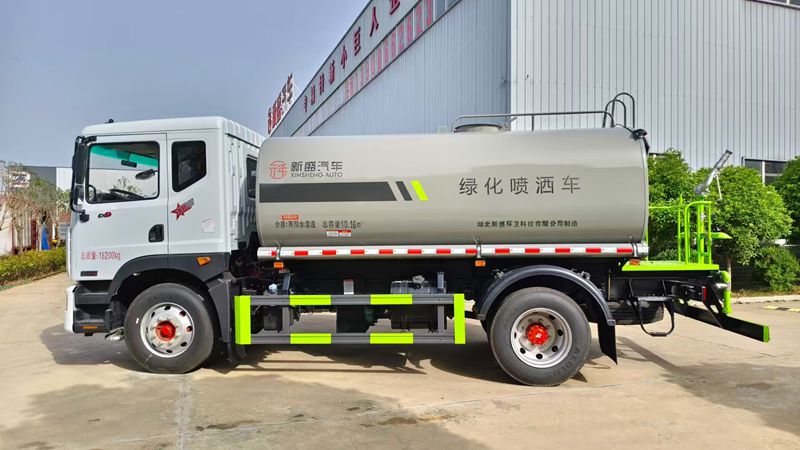Sprinkler Trucks: Enhancing Campus Environments and Green Urban Projects
Sprinkler trucks are expanding their influence into new domains, proving indispensable in maintaining campus ecosystems and supporting large-scale urban greening initiatives. Their adaptability and efficiency are making them key contributors to creating healthier, more vibrant spaces in both educational and urban settings.

Campus Care: Nurturing Learning Environments
Schools and universities are increasingly relying on sprinkler trucks to maintain their green spaces, which play a crucial role in student well-being and academic performance. At the University of Cape Town in South Africa, a dedicated fleet of sprinkler trucks tends to the campus’s extensive gardens and sports fields. These trucks use programmable timers to water different areas according to their specific needs—more for delicate flower beds, less for drought-resistant lawns. The result has been a 20% reduction in water usage while keeping the campus lush, providing students with serene outdoor study spots.
In primary schools across Australia, sprinkler trucks are used to create safe play environments. They regularly mist playgrounds during hot weather to prevent surfaces from overheating, reducing the risk of burns. “Our students can play comfortably even on 35°C days, thanks to the sprinkler trucks,” says a school principal in Melbourne. These trucks also help maintain school vegetable gardens, teaching children about agriculture and sustainability through hands-on experience.
Driving Urban Greening Initiatives
Cities undertaking ambitious greening projects are turning to sprinkler trucks as essential tools. In Paris, France, which aims to increase urban green space by 50% by 2030, sprinkler trucks are vital to establishing new community parks on former industrial sites. The trucks prepare the soil by ensuring proper moisture levels before planting and then maintain young trees and shrubs during their critical growth phase. Municipal workers report that areas cared for by sprinkler trucks have a 30% higher survival rate for new plantings compared to manual watering.
In Seoul, South Korea, sprinkler trucks are part of a project to green rooftops across the city. Equipped with extendable hoses, the trucks reach even the highest rooftops, delivering water to vegetable gardens and wildflower meadows that help insulate buildings and reduce urban heat. “These trucks make urban greening feasible on a large scale,” says a city planner. “Without them, maintaining rooftop gardens would be prohibitively expensive.”
Innovations for Water Conservation
New technologies in sprinkler trucks are revolutionizing water efficiency. In Phoenix, Arizona, where water scarcity is a constant concern, sprinkler trucks are fitted with soil moisture sensors that determine exactly how much water each area needs. The trucks only spray when the soil reaches a certain dryness threshold, preventing over-watering. This smart system has reduced water usage for city maintenance by 45% compared to traditional methods.
In Singapore, a “closed-loop” system is being tested where sprinkler trucks collect rainwater from street drains, filter it, and reuse it for watering. This not only conserves drinking water but also helps manage stormwater runoff, reducing the risk of flooding. Early trials show that each truck can collect up to 500 liters of rainwater per day during the monsoon season.
Supporting Community Gardening Movements
Community gardens, which provide fresh produce and foster social connections, are thriving with the help of sprinkler trucks. In Detroit, Michigan, a nonprofit organization partners with the city to dispatch sprinkler trucks to community gardens in underserved neighborhoods. The trucks ensure that gardens have consistent water, boosting crop yields and making fresh vegetables more accessible to local residents. “The sprinkler truck is like a community member—it shows up every week to help us grow food for our families,” says a garden volunteer.
In Nairobi, Kenya, sprinkler trucks are used to establish school gardens that teach children about nutrition. The trucks visit each school on a rotating schedule, ensuring that gardens can be maintained even in dry seasons. These gardens now provide over 30% of the vegetables served in school lunches.

